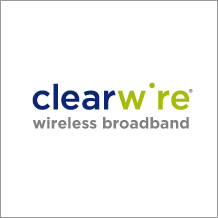 Goodbye Wi-Fi: wireless signals get maximized Clearwire founder Craig McCaw shakes up the telecom industry again.
SAN FRANCISCO (Business 2.0 Magazine) -- The Disruptor: Clearwire The Innovation: National Wi-Max broadband wireless service
The Disrupted: Telecom and cable companies It's almost a given these days that Clearwire, the Wi-Max wireless network founded by cellular pioneer Craig McCaw, will shake up the wireless broadband sector. "If anyone is going to do it, it's going to be Clearwire," says Joe Laszlo, a senior broadband analyst at JupiterResearch in New York. "They've got the best technology, great financing, and a lock on nationwide spectrum." The only real question seems to be how deep into the telecom establishment the shock waves from McCaw's latest bit of disruption will penetrate. Clearwire's initial goal is to create a nationwide broadband wireless network based on Wi-Max, a more powerful relative of Wi-Fi technology. Because Wi-Max infrastructure is much cheaper to build and maintain than traditional networks, some analysts think Clearwire will be able to seriously undercut the broadband prices of Comcast (Charts), Verizon (Charts), and their ilk. But the threat posed by McCaw's strategy could be much greater than just price pressure. Clearwire's approach could put in jeopardy the billions of dollars that telecoms and cable operators are pouring into upgrading their existing broadband networks. And in theory at least, Clearwire could eventually offer the cutting-edge services that telecoms and cable companies are angling for -- Web-based TV, movies on phones, VOIP calls, and the like. Clearwire is already offering VOIP phone service to 13 markets, and some expect the startup to partner with mobile-phone, IPTV, or satellite-TV companies to further expand its range of services. (Full disclosure: AOL, owned by the parent company of Business 2.0, is a reseller of Clearwire Wi-Max service.) "Filling a need that others aren't addressing has always been a focus of the McCaw companies," says McCaw's co-chief executive officer, Ben Wolff. "We are creating a brand-new category." Certainly, the press-shy McCaw knows a thing or two about shaping disruptive networks. He began building the country's first national cellular network in the early 1980s, eventually selling it to AT&T for $11.5 billion. With Clearwire, McCaw has moved on to Wi-Max. Wi-Max has big technical advantages over other fast pipes, particularly Wi-Fi. Unlike Wi-Fi, it operates on a licensed spectrum, making the service far more reliable. The range of Wi-Fi signals is measured in hundreds of feet; Wi-Max's range is measured in miles. Clearwire already offers basic Wi-Max broadband service in Brussels, Dublin, and 27 U.S. metropolitan markets covering more than 200 cities and towns. Its network had 100,000 subscribers at the end of March. (The company won't say how many new subscribers it has added since then or disclose financial details.) Clearwire also has made the installation process, often a painful hassle for Wi-Fi users, consumer-friendly with Wi-Max. A customer plugs a paperback-size modem into a power source and into a computer (via Ethernet) and the network is good to go. "It's a very simple process for a consumer to get up and running," says Jupiter's Laszlo. Clearwire has challengers, notably Sprint (Charts), which expects to spend as much as $3 billion in the next two years building a rival Wi-Max network and currently owns more spectrum than Clearwire. But Clearwire has powerful backers: In July, Intel (Charts) and Motorola (Charts) pumped $900 million into the company, a measure of their faith in McCaw's approach -- and of their hunger to sell chips and other gear that make Wi-Max work if it becomes a mainstream service. Perhaps most important, Clearwire has McCaw. "Disruptive," says Rich Begert, CEO of Wireless Services and a former McCaw executive, "is the best way to describe Craig." To send a letter to the editor about this story, click here. |
|

